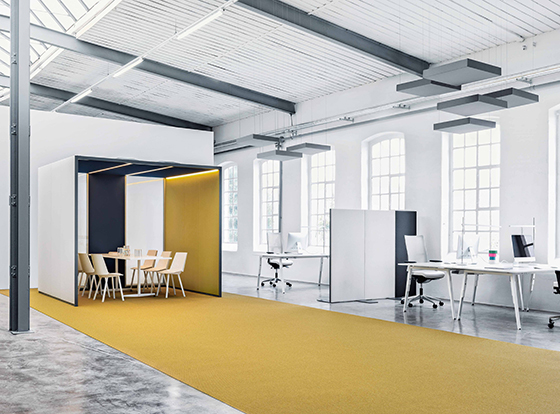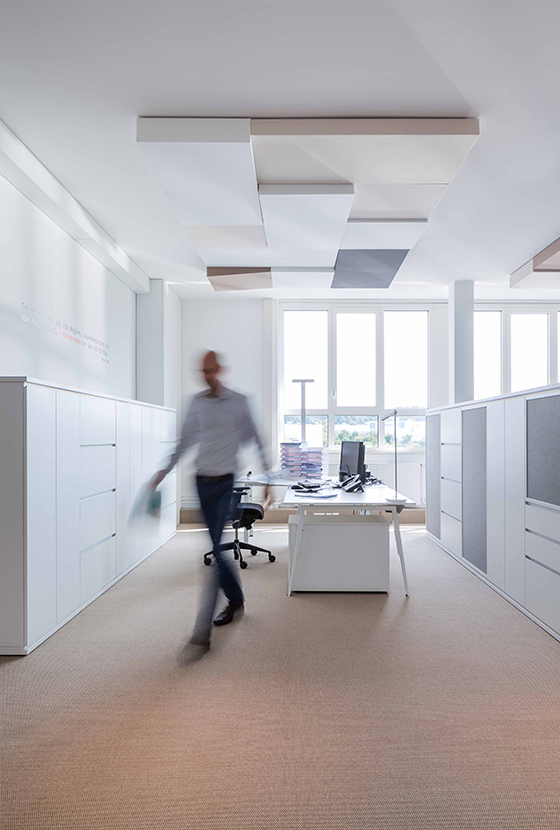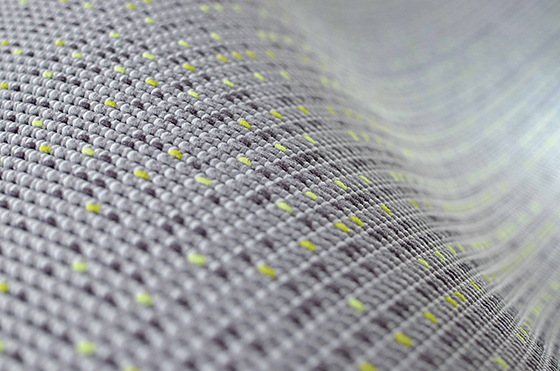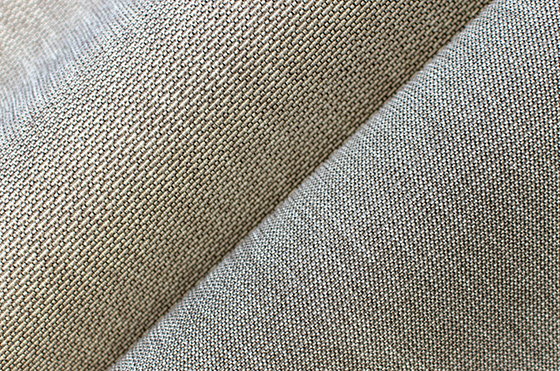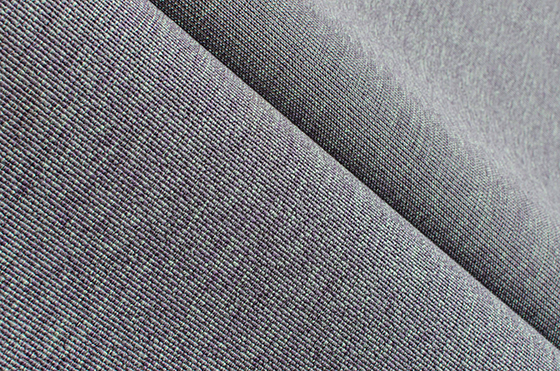Carpet Concept: Rethinking spaces
Text by DETAIL - Zeitschrift für Architektur + Baudetail
München, Germany
08.06.16
Carpet specialist Carpet Concept specialises in providing holistic solutions. At its own factory in Münchenbernsdorf it carries out intensive development work, creating everything from textile collections to holistic spatial concepts that allow interior spaces to be repeatedly transformed.
More intelligent, more flexible, and greener: Carpet Concept’s specialists create designs that don’t date, so the carpets can be used for a long time. The company’s award-winning Hem woven-carpet collection, for example, was developed together with Ben van Berkel/UNStudio. The numerous colour variations are inspired by landscapes and offer wide-ranging possibilities for textile interior design.
Carpet Concept’s latest product is a woven carpet with a surprising ‘Qutfit’. The idea behind Eco Iqu was to create a woven carpet with a very fine structure - suiting material for the floor as it were. The result is a material innovation with two different facets: a product with a fine structure as ‘couture for the office’, and a ‘rougher craftsman’s look’ as a strong counterpart. In each case, Eco Iqu has underlying parameters that every company will appreciate: the floor rounds off the architectural outfit, saves money, and thanks to efficient yarn use achieves a good ecological balance. An acoustically-effective version is also available for productive silence in the office.
Office-sector requirements are nowadays as diverse as the working world itself, and include a desire for zoning, common and individual retreat areas. Using acoustically-effective CAS Carpets on floors, CAS Objects on the walls and ceilings, and the flexible modules of CAS Rooms, spaces can be repeatedly redefined.
CAS is a system that responds to the diverse needs of the modern working world. When circumstances or companies change, CAS Rooms can easily change with them. Spaces can easily be converted and clad with fresh fabrics and colours. In addition, the system boasts internal values, because CAS is systematically sustainable. CAS Rooms textile and ceiling elements have a core made of gypsum fibreboards that clearly fall below the limits for emissions and vapours. PCBs, pesticides and plasticizers: These involatile pollutants can still be detectable in properties after years of use, and are therefore strictly and deliberately avoided during production, with everything going back into the recycling loop.
---
Text: Katja Reich

